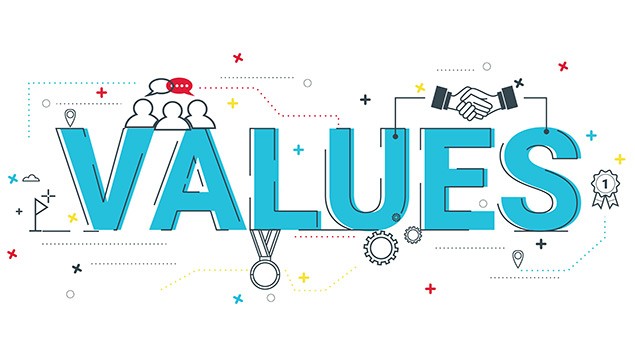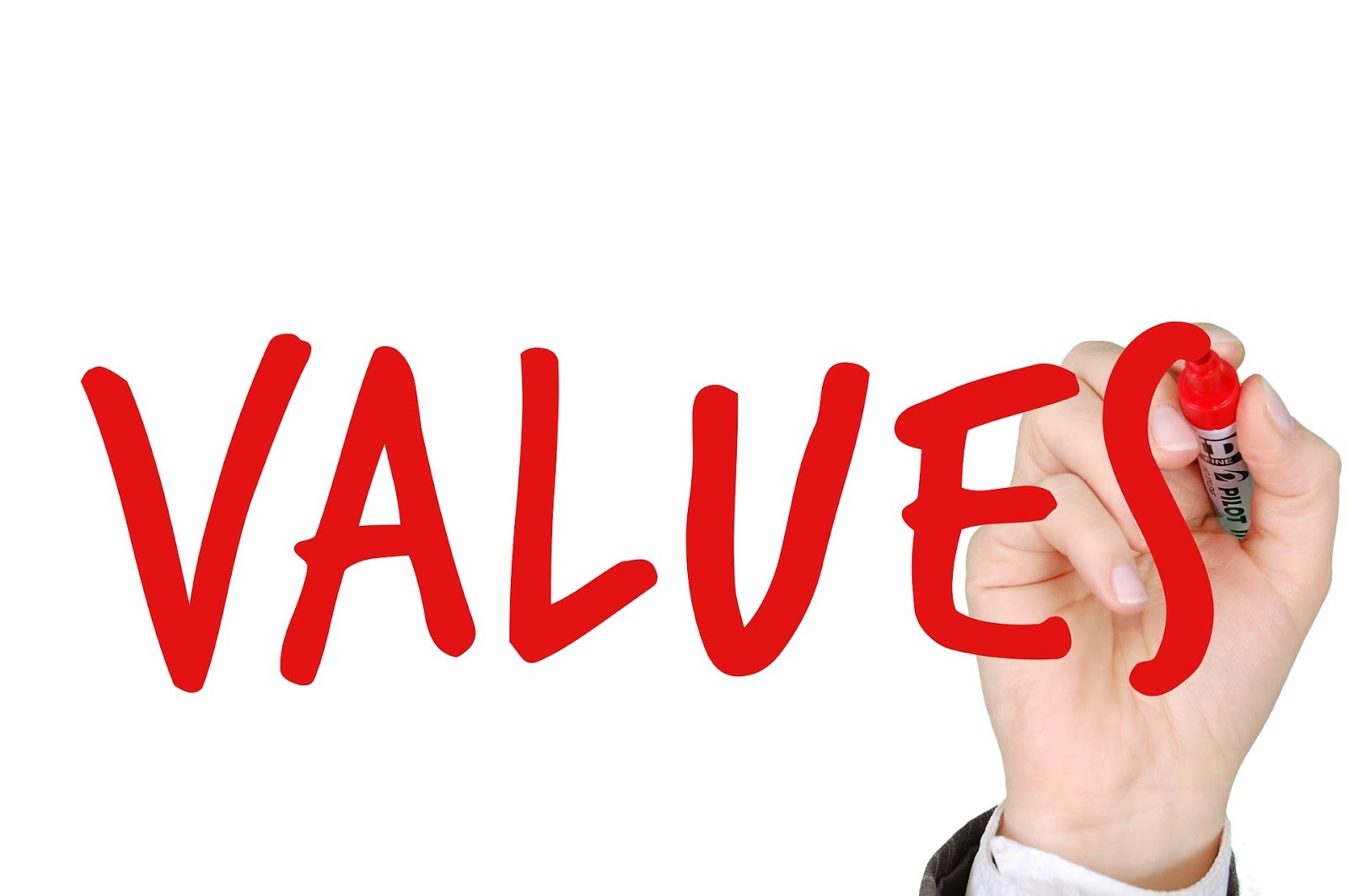Welcome to Tanca guide on company values examples. In today’s business landscape, company values are more important than ever before. They not only serve as a guide for decision-making and employee behavior but also play a critical role in attracting and retaining top talent.
Companies with well-defined and consistently lived values have been shown to outperform those without them. In this guide, we will provide you with various examples of company values from different industries and show you how to define, implement, and live by them.
What are company values?

Company values are core beliefs that shape a company's personality, culture, and character. They guide behavior and decision-making at all levels, acting like a compass that directs actions, defines employee interactions with clients and each other, and provides clarity on the company's mission.
In essence, company values form the foundation of a company's culture and strategy. By setting clear values, a company can ensure that everyone understands what is important and expected of them.
Why are company values important?
First off, they define the culture and identity of the company, which helps to create a sense of unity among employees and establish a strong organizational identity.
Secondly, they act as a guide for decision-making at all levels, helping employees to make ethical and informed decisions that align with the company's mission and values. Company values are also a powerful communication tool, conveying what's important to the company, how it operates, and what it expects of its employees.
Strong company values can even help with recruitment and retention of top talent, as employees are more likely to stick with a company that aligns with their own values and provides a sense of purpose.
Plus, when employees understand and embrace company values, they tend to be more engaged, motivated, and productive.
And let's not forget about brand reputation - a company's values are closely tied to its reputation, so by communicating and living those values, a company can build a positive reputation and set itself apart from competitors.
Characteristics of effective company values

Meaningful
Effective company values are meaningful and relevant to the company's mission and goals. This indicates that the values should have a sense of resonance with the stakeholders and employees of the company, as well as provide a sense of purpose and direction.
Meaningful values increase the likelihood that employees will feel connected to their employer and motivated to work towards the achievement of the company's goals.
Actionable takeaway: When creating company values, make sure they align with the company's mission and goals, and involve employees and stakeholders in the process to ensure that the values resonate with them.
Authentic
That means they gotta be rooted in the company's history, culture, and values, and not just some fluffy, feel-good words that don't mean anything. When a company's values are authentic, it's easier for employees and stakeholders to believe in them and trust that the company is walking the talk.
Actionable takeaway: Look at the company's history, culture, and values when creating values, and avoid generic or superficial values that do not accurately reflect the company's identity.
Clear and concise
This is due to the fact that when things are overly complicated or difficult to comprehend, people have a tendency to tune them out or forget about them.
Therefore, it is essential for the core values of a company to be uncomplicated and to the point in order to ensure that they are easily understood and put into practise by all employees.
Actionable takeaway: Keep the language and structure of the values simple and concise, using concrete examples where possible to illustrate the values in action.
Actionable
In reality, they are intended to guide workers towards making choices and taking actions that are congruent with the objectives of the company. This is what we mean when we say "actionable," by the way.
Values aren't just promises when they're actionable. And when workers actually put those values into practise by allowing them to direct how they behave, that's when the magic happens.
Actionable takeaway: Provide employees with training and resources to help them understand how to use the values in their daily work, and make sure that the values are integrated into the company's decision-making processes.
Inclusive
Effective company values are inclusive and promote diversity, equity, and inclusion. This means that they reflect the company's commitment to creating a positive and inclusive work environment that values and respects all employees.
When values are inclusive, employees feel valued and supported, and the company is more likely to attract and retain diverse talent.
Actionable takeaway: Ensure that the values reflect a commitment to diversity, equity, and inclusion, and provide training and resources to help employees understand and implement inclusive practices.
Measurable
Measurable values allow employees and stakeholders to assess performance. A company may value "customer satisfaction." Customer surveys can measure this. This lets them see if they're meeting the value or need to make changes.
Measuring values helps everyone understand how their actions affect the company. It's like getting a report card. It makes people accountable and encourages them to achieve the company's goals.
Actionable takeaway: Establish metrics and benchmarks to track progress towards the values, and regularly evaluate and report on progress towards meeting these goals.
Read more: Employee Development Plans
80+ Examples of company values

- Accountability: Accenture, HubSpot
- Adaptability: Amazon, IBM, Netflix
- Authenticity: Airbnb, Patagonia, Ben & Jerry's
- Balance: Buffer, Hilton
- Boldness: Coca-Cola, Tesla, Nike, GE
- Candor: Google, Netflix
- Collaboration: Atlassian, Dropbox, Microsoft
- Community: Ben & Jerry's, Etsy, TOMS
- Creativity: Adobe, Apple, Pixar
- Customer Focus: Nordstrom, Zappos, Amazon
- Diversity: Airbnb, Google, Intel
- Empathy: Airbnb, Warby Parker, Patagonia
- Excellence: BMW, Nike, Patagonia
- Fairness: Ben & Jerry's
- Flexibility: Deloitte, General Electric, Netflix
- Freedom: Basecamp, REI
- Fun: Google, Mailchimp, Southwest Airlines, Zappos
- Global Mindset: Unilever
- Gratitude: American Greetings, Patagonia, Starbucks
- Happiness: Coca-Cola
- Honesty: Costco, General Electric, Whole Foods Market
- Humility: Patagonia, Southwest Airlines
- Innovation: Apple, Google, Tesla
- Integrity: Johnson & Johnson, Procter & Gamble
- Inclusion: Starbucks
- Initiative: 3M
- Inspiration: Nike
- Leadership: Ford, McKinsey & Company
- Learning: Google, Khan Academy, LinkedIn
- Listening: McKinsey & Company
- Loyalty: American Express, Patagonia, USAA
- Open Communication: HubSpot
- Open-mindedness: IDEO, Intel
- Ownership: Procter & Gamble, Red Hat
- Passion: Airbnb, Patagonia, Salesforce, Tesla
- Perseverance: Under Armour
- Positive Attitude: Chick-fil-A, Disney
- Proactivity: Uber
- Professionalism: Deloitte
- Quality: Patagonia, Seventh Generation, Toyota
- Respect: Ford, Microsoft, REI
- Responsibility: Ben & Jerry's, Nestle, Patagonia
- Results-driven: Deloitte, General Electric, Salesforce
- Risk-taking: Amazon
- Safety: 3M, Caterpillar
- Self-Improvement: LinkedIn
- Service: Marriott International, Nordstrom
- Simplicity: Buffer, Google
- Social Responsibility: Patagonia, The Body Shop
- Speed: FedEx
- Stewardship: Patagonia, Seventh Generation, The Nature Conservancy
- Sustainability: Patagonia, TOMS, Unilever
- Teamwork: Cisco, REI, W.L. Gore & Associates
- Tenacity: Nike
- Transparency: Buffer, Patagonia
- Trust: American Express, IBM, Salesforce
- Unity: PepsiCo
- Vision: Walt Disney Company, SpaceX
- Visionary: SpaceX
- Wellness: Whole Foods Market
- Winning: PepsiCo
- Work Ethic: Honda
- Work-Life Balance: Accenture, Hilton
- Worthiness: Lululemon
- Ambition: Johnson & Johnson, Uber
- Authentic Relationships: Southwest Airlines
- Courage: Patagonia
- Curiosity: Pixar
- Efficiency: Toyota
- Empowerment: Netflix, Patagonia, Southwest Airlines
- Equality: H&M
- Ethics: Johnson & Johnson
- Family: Publix, Wegmans
- Generosity: Newman's Own
- Health: Whole Foods Market
- Humor: Mailchimp
- Ingenuity: Tesla
- Kindness: Warby Parker
- Continuous improvement: Toyota
- Customer obsession: Amazon
Case studies of successful company values implementation

Patagonia
Patagonia, a well-known brand of outdoor clothing and equipment, is an example of this type of business. They prioritise environmental activism, sustainability, and ethical manufacturing. They've taken some innovative steps to ensure that these values are upheld throughout the company.
For instance, they offer paid internships to workers who want to volunteer with environmental groups. Furthermore, they offer financial incentives to employees who purchase hybrid or electric vehicles, as well as encourage carpooling and biking as commuting options.
Buffer
One more illustration of this would be the social media management company Buffer.
Transparency, positivity, and a primary emphasis on the fulfilment of the needs of the customer are among their core values. To put these values into action, they have an open salary policy in which every employee's salary is made public within the company.
Through regular one-on-one meetings and a company newsletter, they encourage employees to be open and honest about their work, successes, and challenges.
Zappos
Zappos is an online retailer that sells clothing and shoes. They have made providing excellent customer service one of their top priorities as an organisation because they consider this to be their most important core value. After the first week of orientation, they offered new hires a $2,000 payout.
It sounds crazy, but it ensures that every employee is fully committed to the company's values and culture. They offer early exits to ensure that only those who truly believe in the company's values stay.
How to set up company values?

Step 1: Determine who's in charge
Decide who will be leading the process of creating the company's core values. Is it one person or a group of people? Agree on how accountability will be maintained so that the focus is kept on the essential values.
Step 2: Get everyone on board
Get the executive leadership team, C-suite, or co-founders on board. Explain why it is important to have core values and how it will make a difference. Speak with them individually to understand their priorities and working style.
Step 3: Find inspiration
Look for companies within and outside your industry that inspire you. Study their core values and read the detailed descriptions of each value. Identify which values resonate with you and why.
Step 4: Collect feedback
Once you have a draft of core values, survey the people in your organization and ask for their feedback. Incorporate their suggestions and finalize the values.
Remember, setting up core values is not just about drafting them; it's about embedding them into your company culture. Make sure everyone understands the values and lives by them. Be creative and come up with activities that will help your team remember and embrace the values.
Explore more: What is transparent leadership?
FAQs
What is the most common company value?
The most common company value is teamwork/collaboration. It's essential for success and everyone knows their contribution to the strategy, works hard, and ensures others are equally successful.
How do you talk about company values in an interview?
When discussing company values in an interview, it's important to highlight the significance of these values and how they guide the organization's decisions and actions.
Emphasize the steps taken to ensure ethical decision-making, such as regular training and open communication channels.
You can also provide examples of how the company has upheld its values in the past to demonstrate its commitment to them.
Final Word
In conclusion, company values play a critical role in shaping a company's culture and guiding its decision-making. By clearly articulating and communicating your company's values, you can create a shared vision for your team and align everyone towards a common goal.
Hopefully, these company values examples have provided you with some inspiration and guidance for developing your own set of core values. If you want to learn more about company culture and values, be sure to check out the Tanca blog for more helpful resources and tips.













